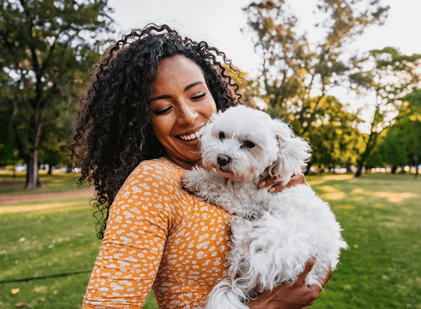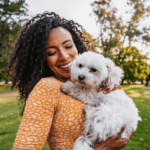
In today’s Western cultures, more people see their dogs as their best friends, family members or even their furry children than ever before. Past studies have shown that up to two-thirds of dog owners consider their dog to be more important than any human in their lives.
Many believe that one reason for such increasingly strong bonds between humans and dogs could be that there has been a transition over the last few decades which has resulted in smaller families and falling birth rates. Indeed, in a time when people feel lonelier and more socially isolated, dogs may have become a perfect substitute for human contact. However, not much scientific research has looked at this societal trend and how it affects the daily lives of dogs.
What kind of dog owner are you?
Some may see their pets as best friends or even fur babies, but according to new research, all dog owners fit into one of three distinct categories. In a new study, scientists from Hungary set out to understand exactly what role dogs play in their humans’ lives.
- More than 800 dog owners were surveyed about their relationships with their pets, what they like about them and how they fit into their lives.
- The results show that nearly all owners really like physical contact with their pooch (97.6%), the “unconditional love” they get from their dog (93.7%) and the “sight and appearance” of their dog (88.4%).
- While a quarter (24.3%) of pup parents don’t enjoy the social interactions their dog generates, 36.3% say they like them a lot.
“Interestingly, even though we collected data from online groups dedicated to family dogs, the owners weren’t all the same,” explains Laura Gillet, lead study author. “We found three distinct profiles of owners whose dogs played diverse social and practical roles.”
The three types of dog owners:
- The Friendly Colleague – They see their pet as a pal and security guard, but they still have a strong emotional bond. Nearly a third (31.1%) of dog owners are this type and they usually own border collies, Belgian shepherds or German shepherds.
- The Dog Parent – Almost half (49.5%) of dog owners are this type, which have a close human-like bond with their dog. They’re most likely to have vizslas, boxers and dachshunds.
- The Companion – They have dogs for companionship, but keep an emotional distance. Only 19.4% of dog owners are in this group, and they usually have English cocker spaniels or Labrador retrievers.
‘Despite the general trend observable in Western countries, in which dogs are more and more perceived as family members providing unconditional love and support, this study highlights that not all dog owners are the same, even in a convenience sample interested in dog behavioural studies,’ the researchers wrote in their study, published in Scientific Reports.
‘Our results show that dogs can fill multiple (social and non-social) roles simultaneously in their owners’ lives, highlighting the complexity of the dog-human relationship.
Source: [Article]



